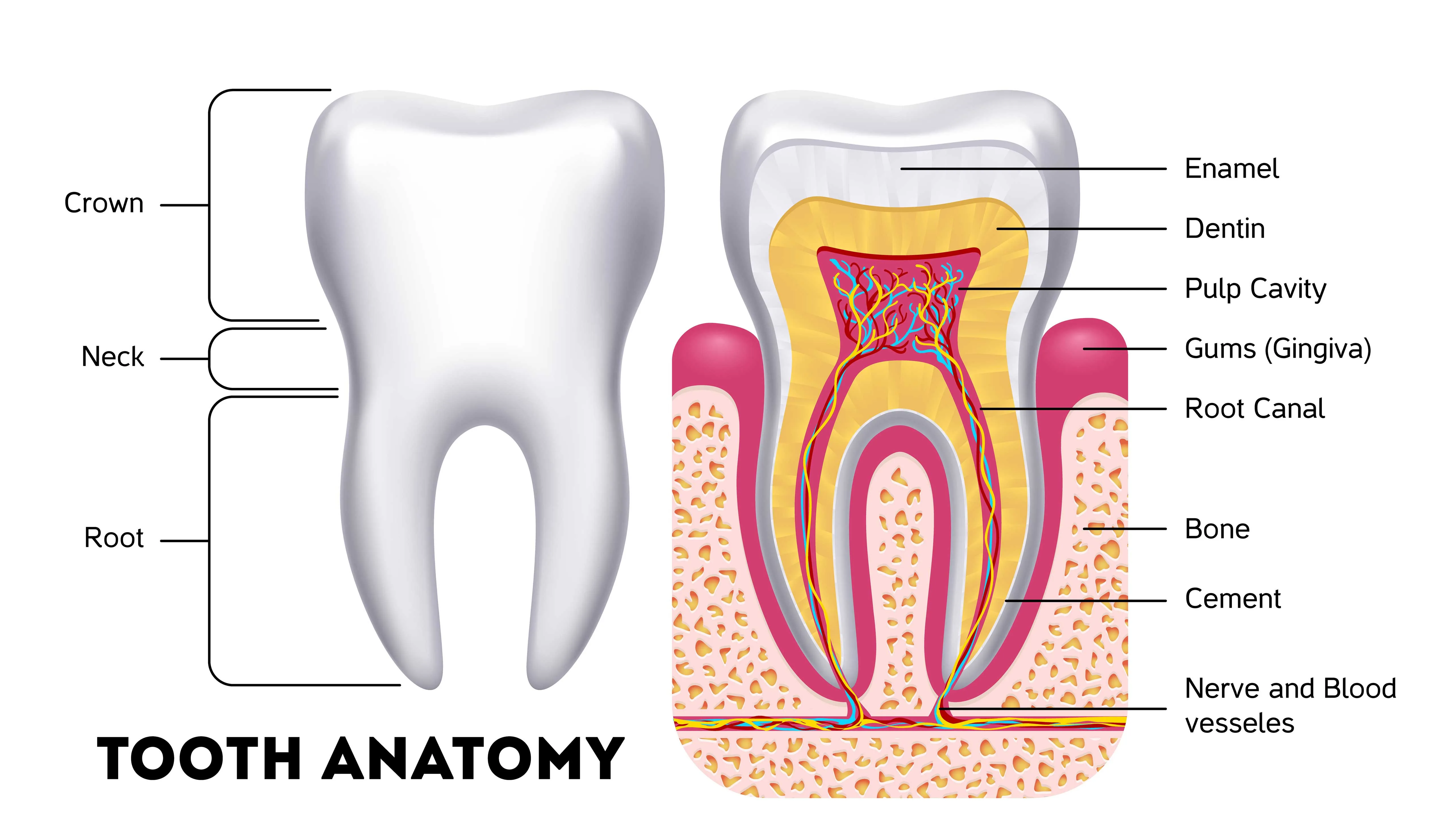
What Is Tooth Enamel and Why Is It Important?

This blog has been reviewed and approved by Francesca Dusio, an Italian registered Dentist with a strong international background.
Table of Contents
Key Takeaways
- Tooth enamel serves as the hard, wear-resistant outer layer of the dental crown. It forms an insulating barrier that protects the tooth from physical, thermal, and chemical forces that would otherwise be injurious to the vital tissue in the underlying dental pulp.
- Enamel can be damaged by several factors, including diet, genetics, environment, teeth grinding, and acid reflux.
- You can help protect your enamel by practicing good oral hygiene, which includes brushing with an electric toothbrush twice per day and using fluoride toothpaste, going to the dentist regularly, and watching what you eat and drink.